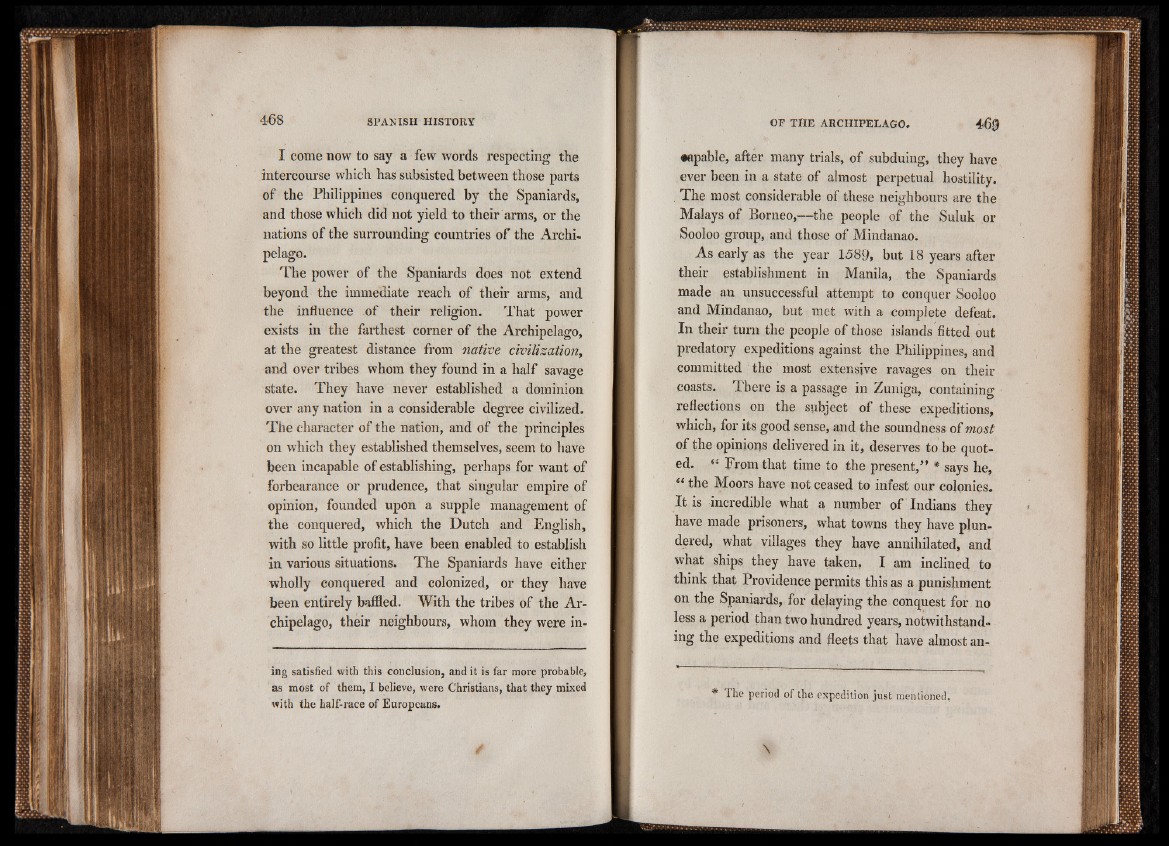
I come now to say a few words respecting the
intercourse which has subsisted between those parts
of the Philippines conquered by the Spaniards,
and those which did not yield to their arms, or the
nations of the surrounding countries of the Archipelago.
The power of the Spaniards does not extend
beyond the immediate reach of their arms, and
the influence of their religion. That power
exists in the farthest corner of the Archipelago,
at the greatest distance from native civilization,
and over tribes whom they found in a half savage
state. They have never established a dominion
over any nation in a considerable degree civilized.
The character of the nation, and of the principles
on which they established themselves, seem to have
been incapable of establishing, perhaps for want of
forbearance or prudence, that singular empire of
opinion, founded upon a supple management of
the conquered, which the Dutch and English,
with so little profit, have been enabled to establish
in various situations. The Spaniards have either
wholly conquered and colonized, or they have
been entirely baffled. With the tribes of the Archipelago,
their neighbours, whom they were ining
satisfied with this conclusion, and it is far more probable,
as most of them, I believe, were Christians, that they mixed
with the half-race of Europeans.
•apable, after many trials, of subduing, they have
ever been in a state of almost perpetual hostility.
The most considerable of these neighbours are the
Malays of Borneo,—the people of the Suluk or
Sooloo group, and those of Mindanao.
As early as the year 1589, but 18 years after
their establishment in Manila, the Spaniards
made an unsuccessful attempt to conquer Sooloo
and Mindanao, but met with a complete defeat.
In their turn the people of those islands fitted out
predatory expeditions against the Philippines, and
committed the most extensive ravages on their
coasts. There is a passage in Zuniga, containing
reflections on the subject of these expeditions,
which, for its good sense, and the soundness of most
of the opinions delivered in it, deserves to be quoted.
« From that time to the present,” * says he,
“ the Moors have not ceased to infest our colonies.
It is incredible what a number of Indians they
have made prisoners, what towns they have plundered,
what villages they have annihilated, and
what ships they have taken, I am inclined to
think that Providence permits this as a punishment
on the Spaniards, for delaying the conquest for no
less a period than two hundred years, notwithstanding
the expeditions and fleets that have almost an*
The period of the expedition just mentioned.